Africa is home to 54 countries, hundreds of languages, rich cultures and traditions, and breathtaking landscapes. But the continent’s wealth of culture and beauty is often eclipsed by its staggering hunger and poverty rates.
20% of people across the continent are chronically hungry (278 million people) (FAO). In sub-Saharan Africa, 40% of the population is living below the poverty line (The World Bank).
So, what streams of income and sources of nutrition does the average African family depend on and why aren’t they enough?
70% of people on the continent are dependent on agriculture (World Economic Forum). Unfortunately, the typical approach to farming today isn’t supporting families. And longstanding generational poverty suggests that it hasn’t been for quite some time.
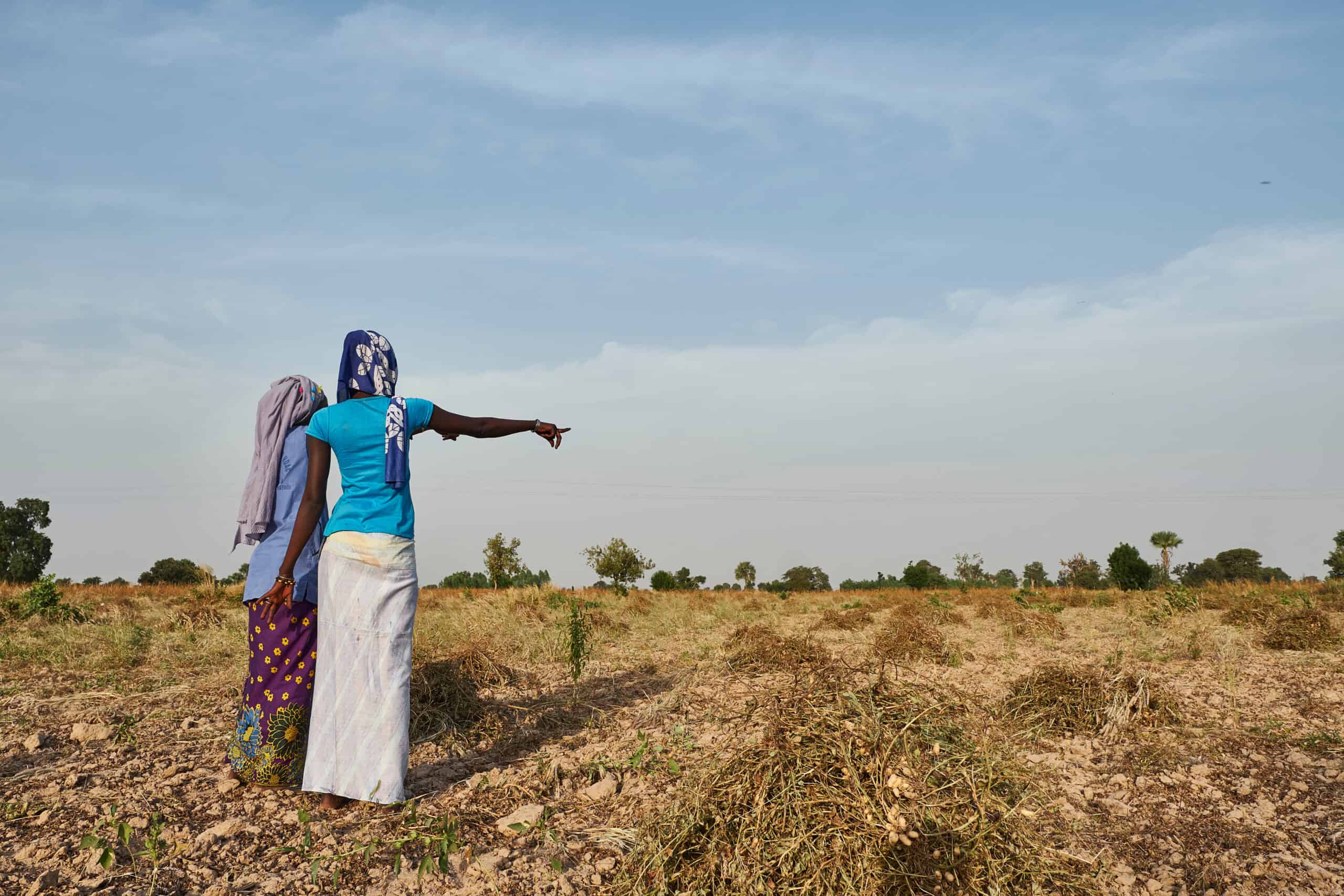
“The causes of systemic hunger and poverty are many and each has its own nuances,” explains Ephrem Woldegiorgis, Deputy Director of Partnerships at Trees for the Future, “but we see firsthand that the current food system is a leading cause of the daily challenges that African families face.”
Decades of unsustainable agriculture practices have resulted in degraded and unproductive land; nutrient-scarce food systems; and farming families who are unable to grow and sell enough to meet their most basic needs.
Trees for the Future (TREES) is a regenerative agroforestry nonprofit training farmers across sub-Saharan Africa in sustainable, nature-based solutions and an agroforestry technique called the Forest Garden Approach. Woldegiorgis and the team at TREES identify farming communities that are living below the poverty line, living in hunger, and farming in challenging climates and conditions. Using the Forest Garden Approach farmers are proving that agroforestry is a solution to each of these challenges, effectively ending hunger and poverty while restoring the land and environment.
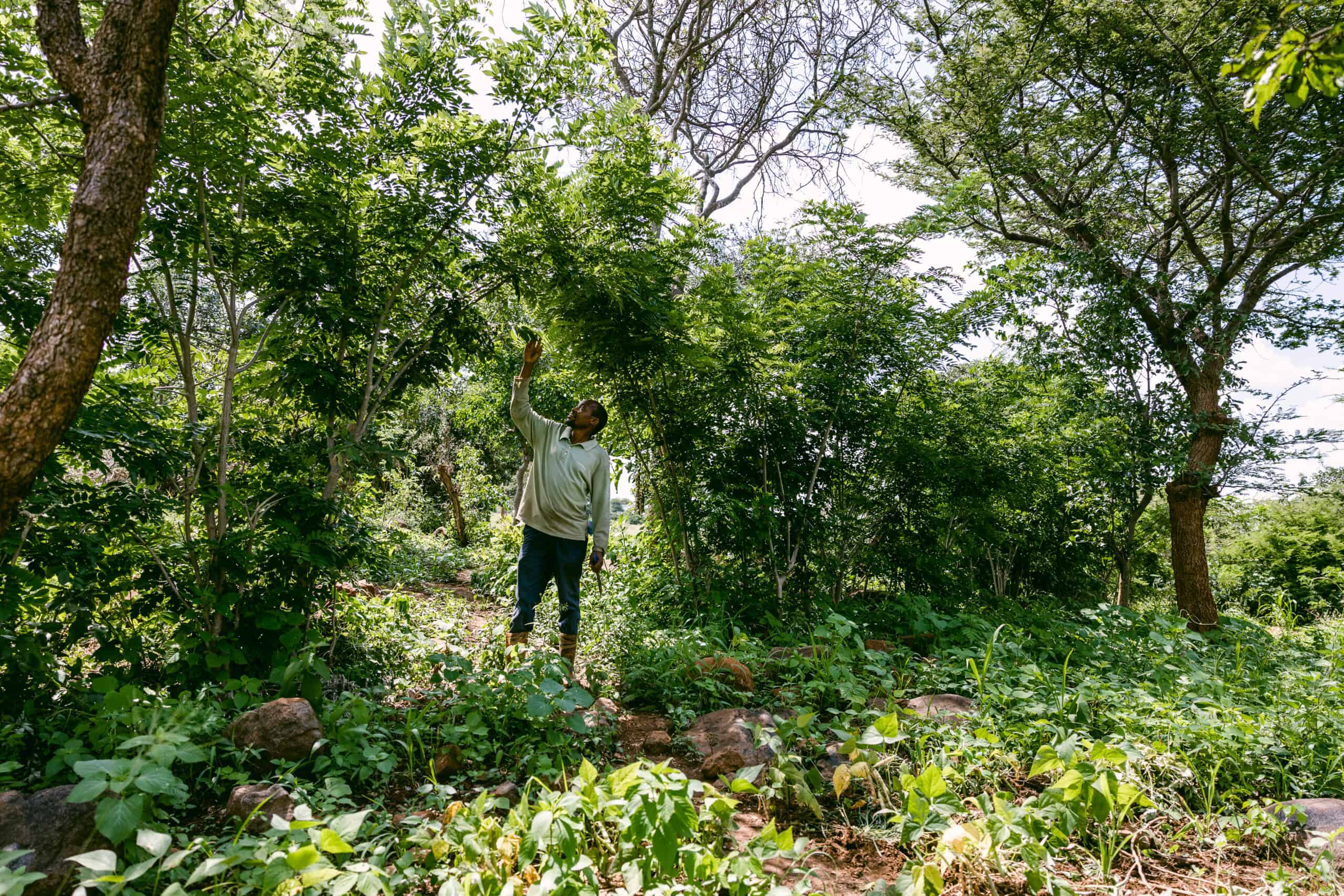
Challenging Climates & Growing Conditions
Around the globe, communities are facing the impacts of climate change. But the effects are disproportionately felt in the Global South where temperature and weather changes are most extreme. High temperatures, extended droughts, and deadly rainfalls are becoming more and more common for rural farmers across sub-Saharan Africa. By focusing on communities on the frontlines of the climate crisis, TREES is able to have the greatest impact on the people and landscapes most affected.
TREES’ local staff teach farmers how to be successful on the land they have and mitigate the growing effects of climate change through agroforestry and climate-smart growing techniques. In the long term, a Forest Garden helps combat climate change and support healthy ecosystems for future generations.
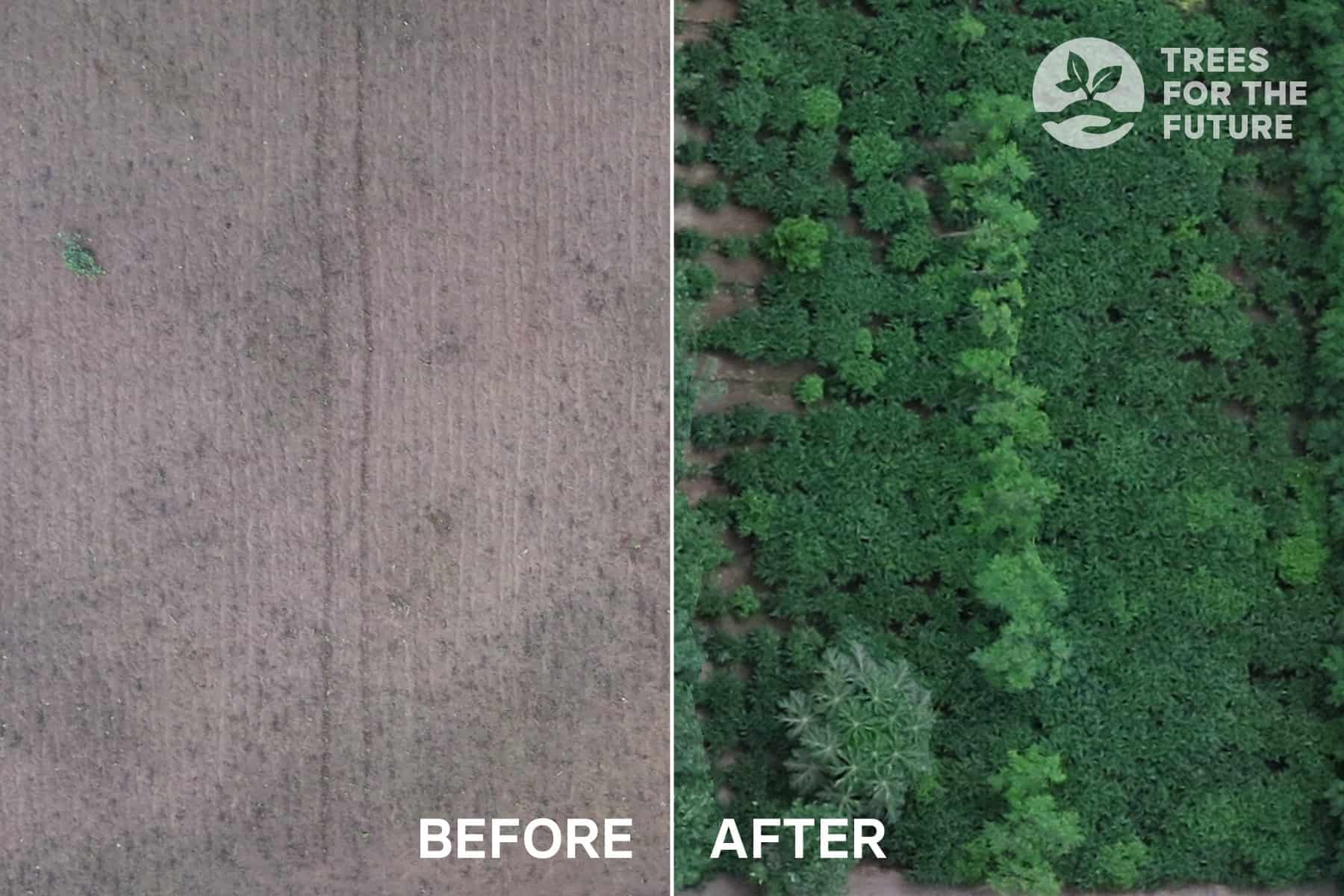
Ending Generational Poverty
The majority of the population in Africa works in agriculture. Longstanding, traditional farming practices still exist, but many farmers today rely predominantly on the industrialized agriculture approach of monoculture farming. This is true around the world. The problem is that farmers have just one or two opportunities a year to turn a profit. If the crop fails, all is lost. For a farmer living in the developing world, with no crop insurance or safety net, the stakes are high.
Through the Forest Garden Approach, farmers diversify their crop portfolio, protecting themselves from unforeseen losses and carving out a niche for themselves in the local economy. As they begin to build their own economic security, farmers invest their earnings in themselves. Many farmers in the program are able to establish secondary businesses: soap products, egg and honey enterprises, even restaurants.
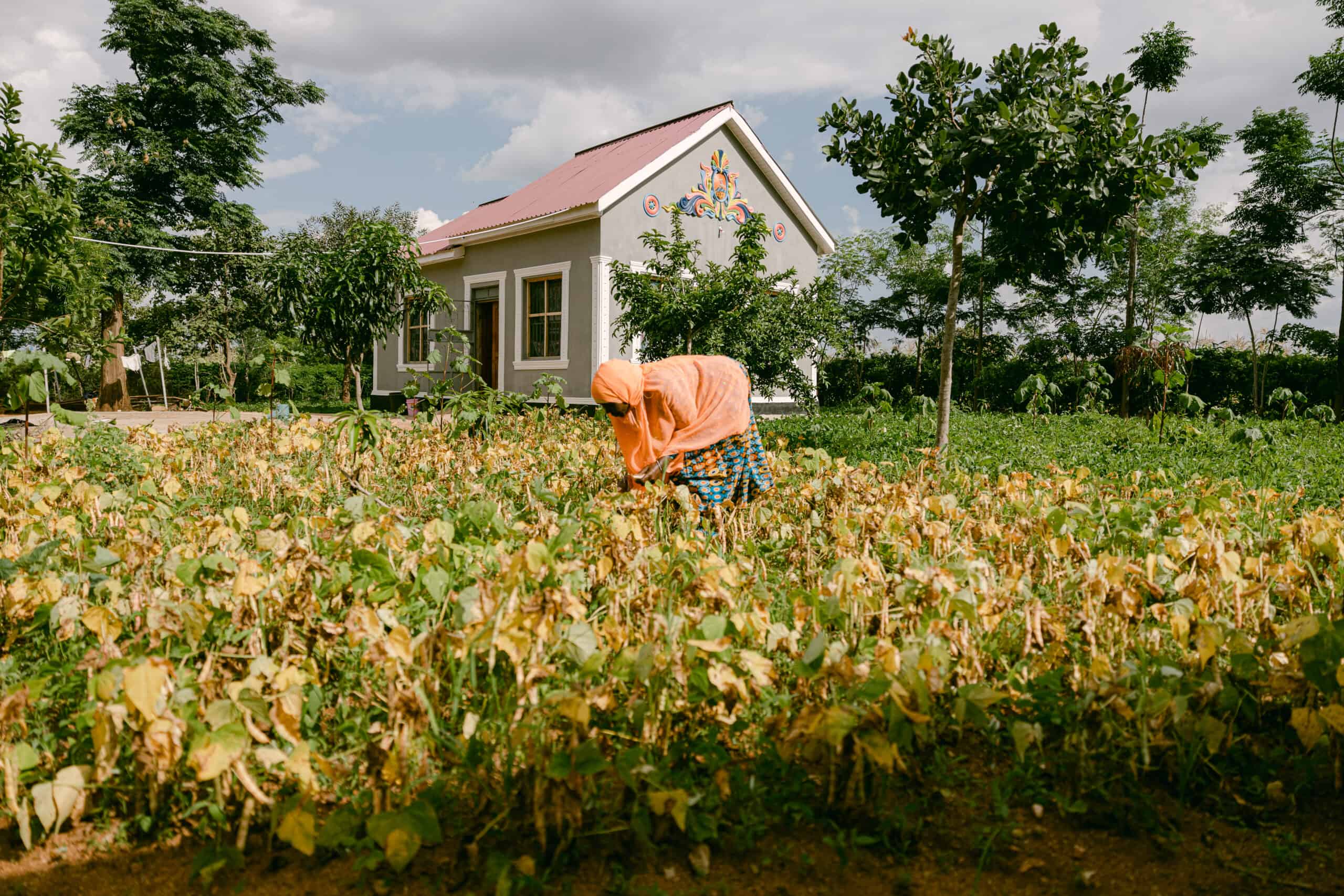
Ending Systemic Hunger
Roughly one in five people are living in hunger in the communities TREES serves. The grains that many of the farmers grow when they enter the program are not going to the dinner table. It is harvested, processed, and shipped elsewhere. If that was the only crop the farmer grew that season, she now must feed her children for months off one payday.
In a Forest Garden, farmers plan entire garden beds around their family’s nutritional needs. TREES staff also teach farmers about the importance of perennial crops, like fruit trees, that provide harvests year after year. This thoughtful land management ensures that the family has something to eat year-round. Where there once were just one or two crops growing, soon dozens of nutritional food crops are thriving.
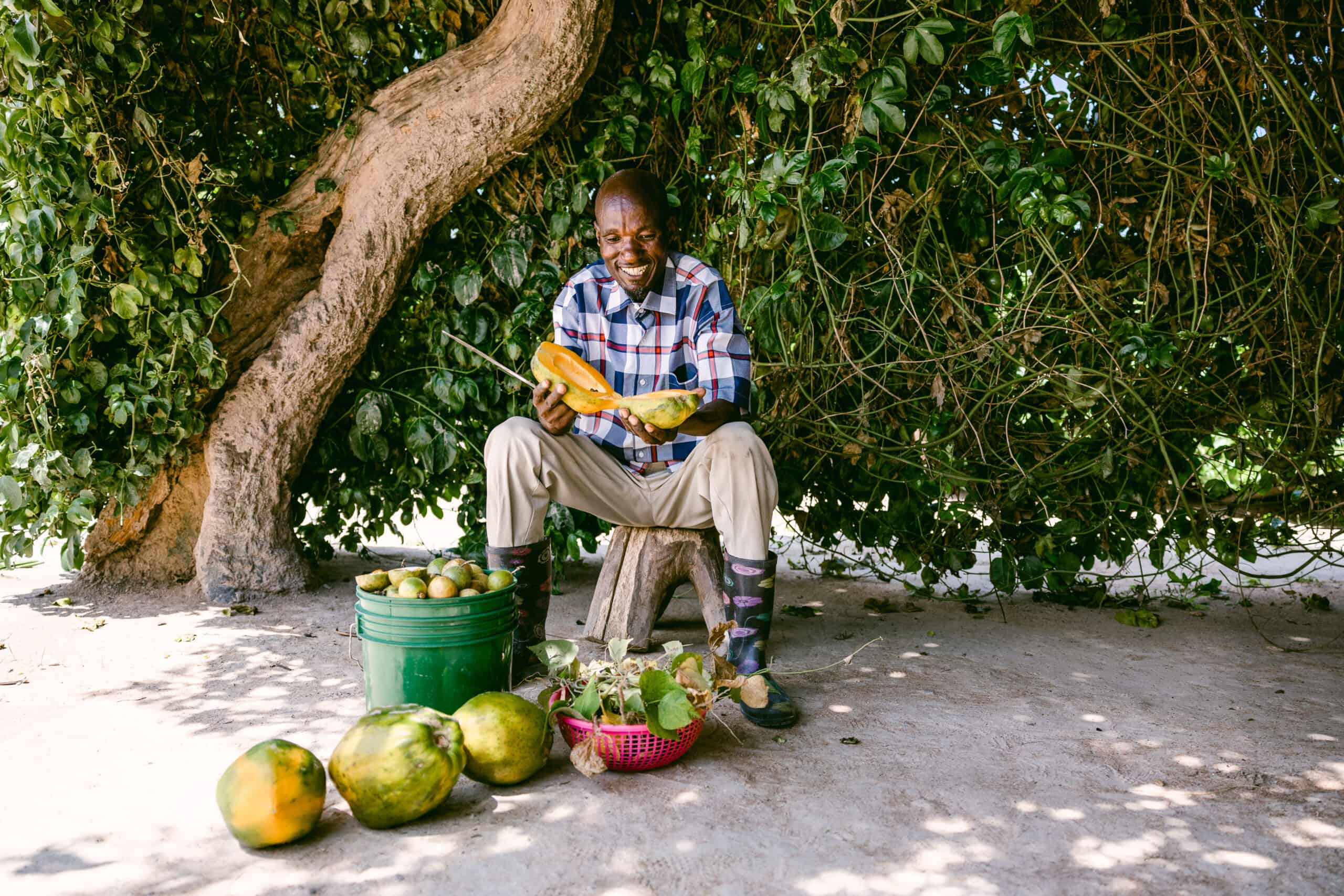
Cultural Sensitivities
Farming is an immensely personal profession. Farmers spend countless hours tending to their land and crops. And because they have so much on the line, they are often quite risk averse. TREES employs expert local staff in each country of operation, taking care to navigate cultural needs and nuances with care and always putting the farmer first. By doing this, TREES can have a lasting impact in each community and expand to neighboring communities as trust grows.
Breaking the Cycle of Aid
The ultimate goal at TREES is to break the cycles of hunger, poverty, and landscape degradation. Farmers are very quickly able to turn the tide through the Forest Garden Approach. Armed with the knowledge and resources they need to thrive long term, they are able to break these cycles permanently. This also means that they don’t need TREES anymore. After the four-year program, farmers graduate from TREES’ program and go on to establish more Forest Gardens, send their children to school, start new businesses, and even teach their neighbors to adopt the Forest Garden Approach.
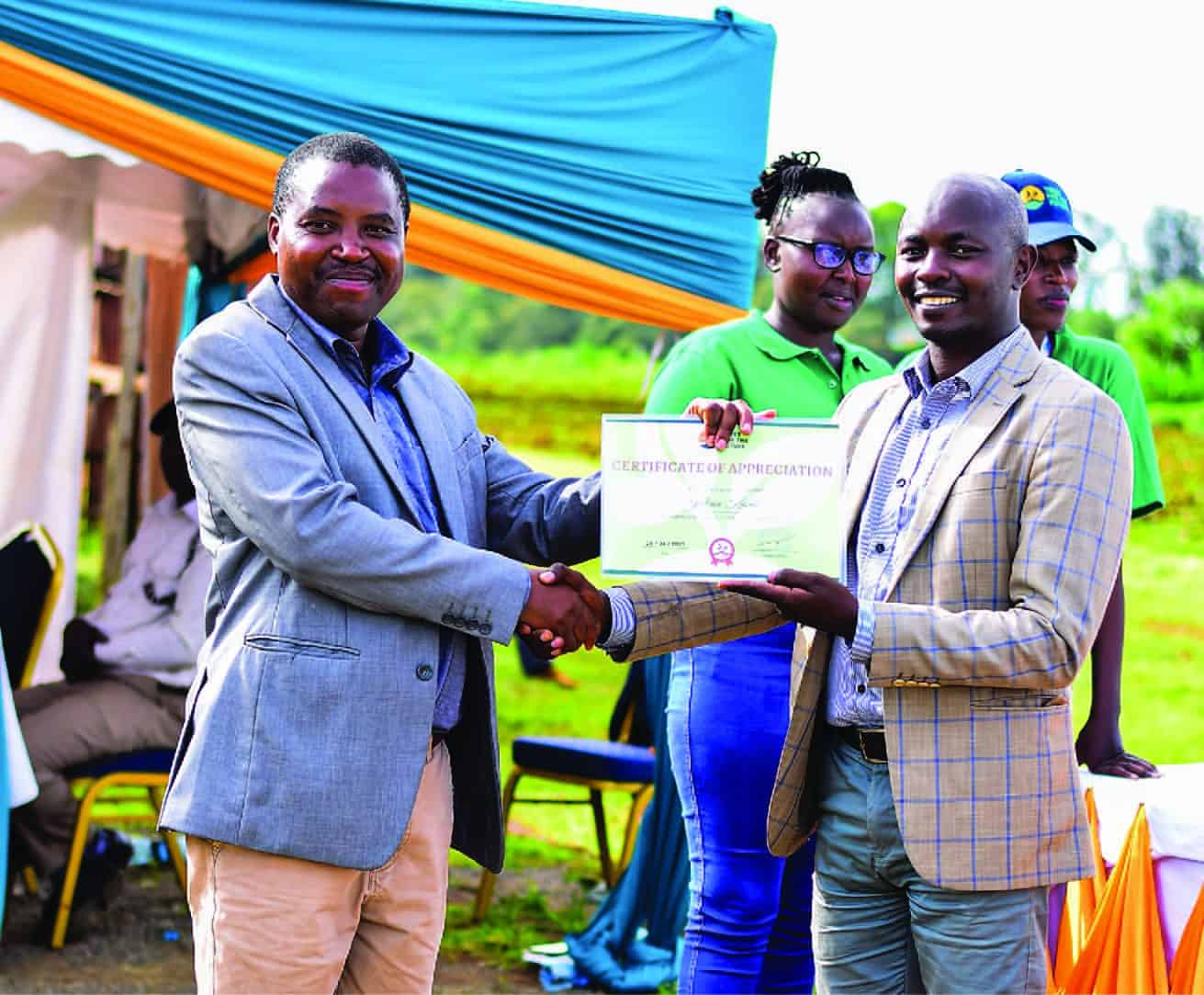
TREES currently works across sub-Saharan Africa, serving farming communities in Kenya, Mali, Senegal, Tanzania, and Uganda. To date, the organization has served more than 40,000 farmers in the Forest Garden Approach, helping to restore thousands of acres of African landscapes to their former splendor and securing reliable sources of food and income for farming families for generations to come.
Help secure a brighter future for farmers across sub-Saharan Africa. Donate to TREES today.